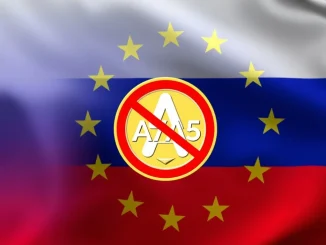
Get ready for a significant shift in Hong Kong’s approach to digital assets. August 1 marks the effective date for the city’s new **Hong Kong stablecoin** ordinance, a move poised to reshape the landscape for these increasingly popular digital currencies.
What Does the New Licensing Regime Entail?
The core of the new ordinance is a comprehensive **licensing regime** specifically designed to govern stablecoin activities. This isn’t just about putting rules in place; it’s about fostering sustainable growth within Hong Kong’s burgeoning **digital asset ecosystem**. The government’s goal is to provide clarity and build confidence for both businesses and investors operating in this space.
Under this new framework, engaging in activities related to issuing or holding stablecoins will generally require a license. However, the ordinance includes a notable exception: certain stablecoins can still be offered without a license, provided they are exclusively targeted at professional investors, as defined by existing securities laws. This carve-out acknowledges the different risk profiles and regulatory needs of professional versus retail market participants.
How is the HKMA Involved in Stablecoin Regulation?
The Hong Kong Monetary Authority (**HKMA**) plays a central role in implementing and enforcing the new **stablecoin regulation**. The HKMA has been actively developing detailed regulatory requirements that licensed entities must adhere to. These requirements are comprehensive and cover critical areas essential for market integrity and stability.
Key proposed requirements from the **HKMA** include robust provisions for anti-money laundering (AML) and counter-terrorist financing (CTF). These measures are standard practice in traditional finance and are crucial for integrating digital assets into the broader financial system responsibly. Other potential areas of focus for the HKMA’s requirements could include:
- Reserve management and backing requirements for stablecoins
- Governance and risk management frameworks for issuers
- Disclosure and transparency obligations
- Cybersecurity and technology risk management
The **HKMA**’s detailed guidelines will provide the operational backbone for the new **licensing regime**, ensuring that licensed stablecoin activities meet high standards.
Boosting Hong Kong’s Digital Asset Ecosystem
The introduction of this clear **stablecoin regulation** is expected to significantly benefit the **digital asset ecosystem** in Hong Kong. By providing a regulated environment, the city aims to attract more legitimate businesses and encourage innovation within a safe and controlled framework. This clarity can help reduce uncertainty for potential market entrants and participants.
A well-regulated stablecoin market can facilitate various use cases, from payments and remittances to trading and decentralized finance (DeFi). By setting clear rules, Hong Kong positions itself as a leading jurisdiction for digital asset development, competing on a global stage.
Challenges and the Path Forward
While the **licensing regime** is a positive step, implementing new regulations always presents challenges. Businesses will need to navigate the application process and ensure compliance with the detailed **HKMA** requirements. The industry will be watching closely to see how the professional investor carve-out is applied in practice and how the **stablecoin regulation** evolves over time.
The August 1 effective date marks the beginning of this new era. The focus will now shift to the practical implementation of the **licensing regime** and how the **HKMA** works with the industry to ensure a smooth transition. This regulatory clarity is a crucial building block for the future of the **digital asset ecosystem** in Hong Kong.
Conclusion: A Regulated Future for Stablecoins in Hong Kong
Hong Kong’s decision to set August 1 as the effective date for its **stablecoin regulation** ordinance is a pivotal moment. The introduction of a clear **licensing regime**, supported by comprehensive requirements from the **HKMA**, demonstrates the city’s commitment to integrating digital assets responsibly into its financial landscape. This move provides much-needed clarity, aims to protect investors, and is designed to foster the sustainable development of the **digital asset ecosystem**. As August 1 approaches, the industry prepares for a new chapter in regulated stablecoin activities in one of Asia’s leading financial hubs.



